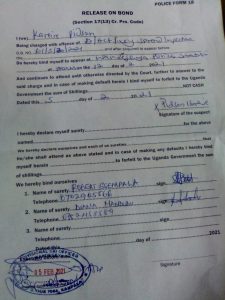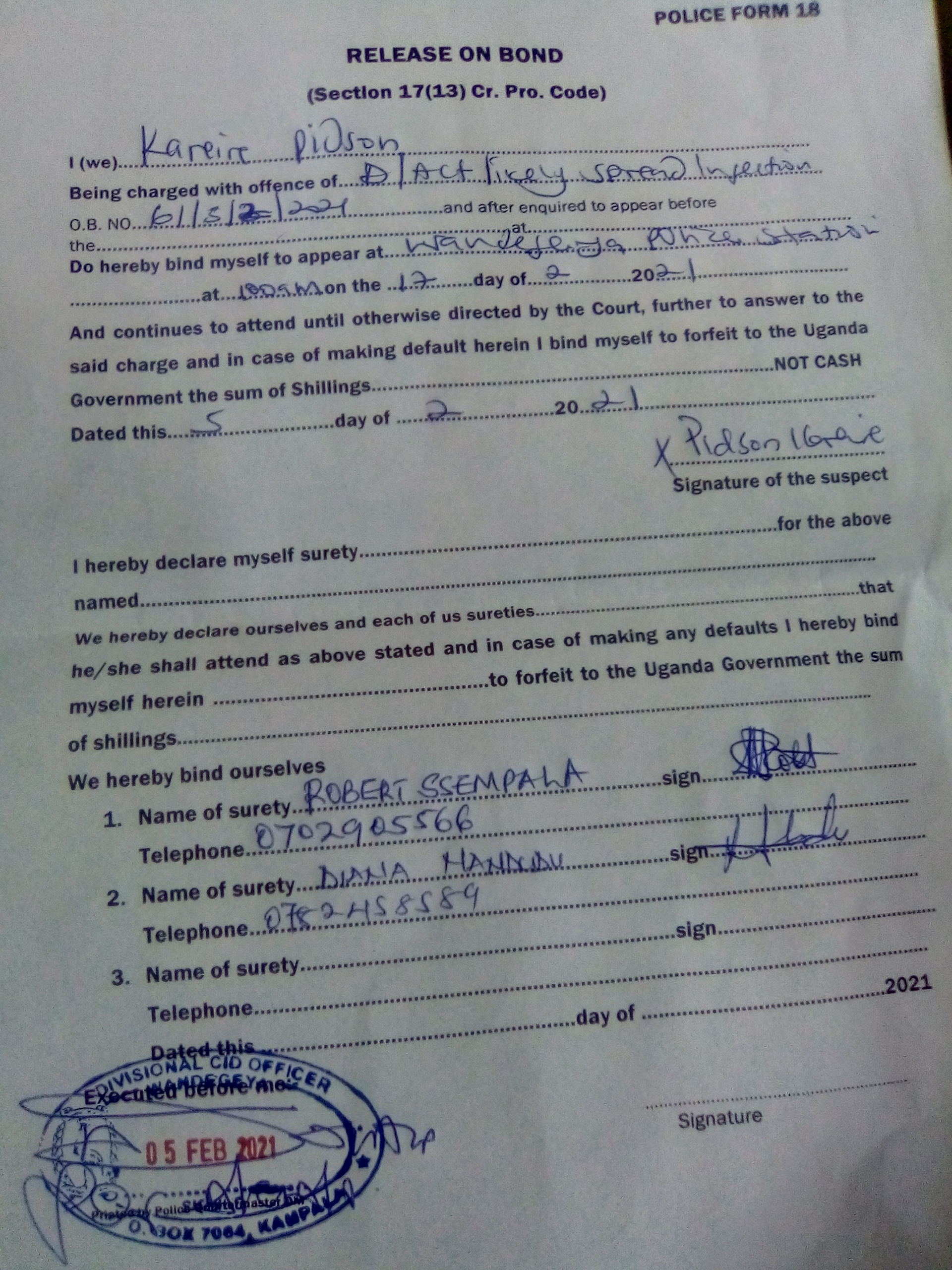Journalist beaten for looking at loaders who were smuggling out face masks at Ministry of Health
By Staff Writer
Pidson Kareire, a Journalist working with The Drone Media, which publishes this gazette, was today beaten to pulp at the Ministry of Health, after he was mistakenly thought to have captured loaders who were smuggling out facemasks.
Kareire who sustained face, jaw and rib injuries narrated his ordeal to this reporter that he had gone to the ministry to meet Dr. Gerald Mutungi about inquiries of cancer, but could not see the doctor. On his return he found it was drizzling and decided to stand in the verandah. Unfortunately, the police officers who who were guarding the booty/loot thought he was intending to snap the loot ( facemasks), they pounced on him. He was held at the ministry without first aid for hours.
Before he called the lawyers from Human Rights Network for Journalists Uganda ( HRNJU), the tormentors told the journalist he had trespassed. Upon the arrival of the lawyers from HRNJU; police at Health Ministry transferred Pidson Kareire to Wandegeya Police Station.
Now, knowing this was law taking its course; police looked for evidence, but wapi! They lacked evidence of criminal trespass because they held the phone and could not find any photo taken from the premises. They ashamedly, charged Pidson Kareire with offence of D/Act likely to to spread infection. Can you imagine! He was later release on Bond.
Fortunately, the law is clear. It is herein read and see if really; these police officers do not need a saviour:
Criminal Law —Negligent Act Likely to spread an infection of Disease—An unlawful or
negligent omission or act committed by the accused – The omission or act must be one likely to spread an infection of disease that is dangerous to life
The accused must have known or had reason to believe that his or her conduct had that capacity- the prosecution must establish that the act was committed with intent to cause the contact which causes infection of a disease criminal negligence refers to a mental state of disregarding known or obvious risks to human life and safety –
“likelihood” connotes a significant possibility as contrasted with a remote possibility, that a certain result may occur or that a certain circumstance may exist – there should be evidence led before court showing that infection in such circumstances is not merely fanciful, remote or plausible, but rather that it is statistically significant and almost certain.
It should be one whose occurrence is almost certain to materialize, unless preventive steps are taken –
evidence must show the presence of a ―significant risk” and the circumstances must have
presented a realistic possibility of transmission.
Evidence — In a criminal trial, the relation of cause to effect must be proved beyond a
reasonable doubt – the legal cause is that which is the most active and effective element in an
interaction that converts necessary and sufficient conditions into a result – The more
particularistic evidence there is that fits with a possibly applicable causal story, the stronger the
link with that tangible result.

– For an inference to be drawn from facts, it must be a reasonable
and natural one, and, to a moral certainty. It is not sufficient that it is probable only – A
reasonable doubt is not just any conceivable doubt. The law does not require proof that
overcomes every possible doubt.
Reasonable doubt is doubt based on uncertainty – It is not sufficient that the circumstances create a probability, though a strong one – Facts relied upon to found an inference must be proved beyond reasonable doubt – A conviction may not rest upon the piling of inference upon inference or on conjecture – Court must exercise care not to draw conclusions which permit the drawing of remote or speculative inferences from assumed facts –
The established rule of evidence is that the court cannot construct a conclusion upon an inference which has been superimposed upon an initial inference supported by circumstantial evidence, unless the initial inference can be elevated to the dignity of an established fact because of the presence of no reasonable inference to the contrary – A supposition based on theory or opinion, without substantial evidence to support it is conjecture..

